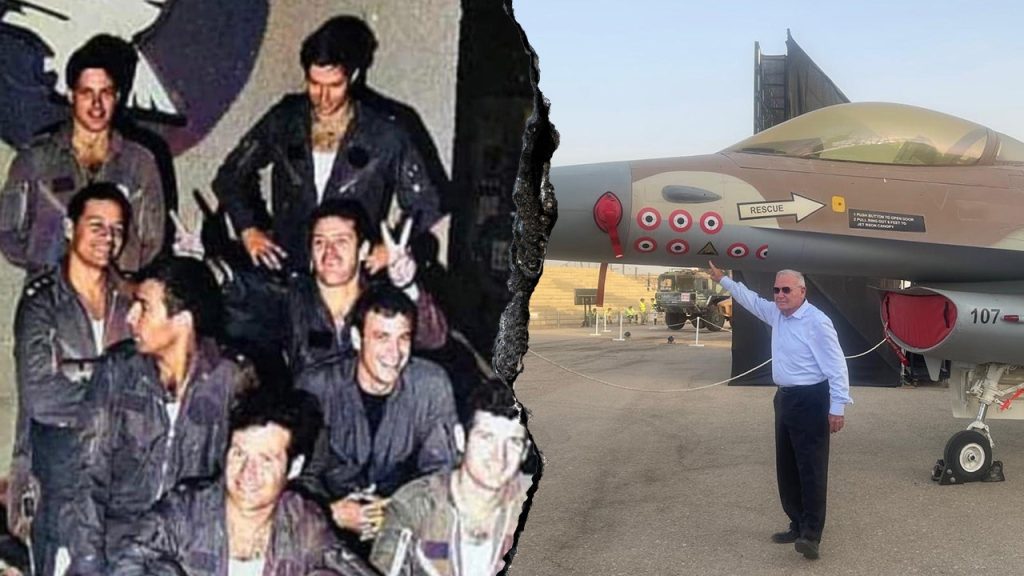Concerns are mounting over Iran’s nuclear capabilities, particularly regarding the fortified Fordow facility located deep underground south of Tehran. As diplomatic efforts wane, Israel is contemplating various military options to neutralize this significant threat. Elite forces are preparing contingency plans to tackle Iran’s enrichment activities, while experts debate the implications of a potential strike.
| Article Subheadings |
|---|
| 1) Understanding Iran’s Fordow Facility |
| 2) Israel’s Military Options |
| 3) Historical Context of Israeli Strikes |
| 4) Implications of a Targeted Attack |
| 5) The Strategic Importance of Fordow |
Understanding Iran’s Fordow Facility
The Fordow facility, covertly built into a mountain, is pivotal to Iran’s nuclear program. Established in 2009, this underground site was designed for uranium enrichment, utilizing advanced centrifuges to convert uranium into nuclear fuel. Its fortified structure poses significant challenges for any military approach aimed at destruction. By analyzing the facility’s layout, Israeli officials underscore the risks posed to both regional and global security.
Located about 180 kilometers from Tehran, Fordow is particularly strategic due to its deep underground positioning. This location makes military strikes less effective, necessitating specialized munitions capable of penetrating hardened structures. Understanding the complexities of Fordow provides a clearer picture of the stakes involved in any potential military action aimed at neutralizing Iran’s nuclear pursuits.
Israel’s Military Options
In response to escalating threats from Iran, Israel has been evaluating a range of military options to neutralize Fordow. One key consideration includes the deployment of elite commandos from the Israeli Air Force’s Unit 5101, known as Shaldag. This unit is particularly renowned for executing high-risk operations, including a recent successful incursion into an Iranian-controlled missile factory in Syria.
Utilizing airborne strategies, such as distraction tactics coupled with nighttime operations, Shaldag has demonstrated its capability to engage targets previously thought impenetrable. Such approaches could be adopted to infiltrate and potentially damage the Fordow facility. Furthermore, airstrikes utilizing sophisticated bunker-buster bombs are being advocated by military strategists to ensure a decisive impact.
Historical Context of Israeli Strikes
Israel’s history of military operations against nuclear targets stretches back several decades. In 1981, a daring mission led to the destruction of Iraq’s Osirak reactor, showcasing Israel’s willingness to act independently when national security is threatened. Under the leadership of then-Prime Minister Menachem Begin, Israeli forces successfully carried out this operation despite significant risks, which could serve as a precedent for future actions against Iran.
Moreover, retired officials, including former Military Intelligence Chief Amos Yadlin, have indicated that past successful strikes, such as the 2007 mission targeting a clandestine Syrian nuclear reactor, reinforce the necessity and feasibility of independent Israeli operations. Understanding the lessons of past missions not only informs current strategies but also reflects Israel’s commitment to countering nuclear threats from hostile nations.
Implications of a Targeted Attack
The implications of a targeted attack on Fordow would be profound, potentially leading to heightened tensions in the Middle East. Military analysts warn that a strike could provoke retaliation from Iran, which has vowed to respond fiercely to any aggressive actions against its nuclear infrastructure.
Critics raise concerns that such an operation might inadvertently escalate into a wider conflict, bringing regional powers into confrontation and complicating existing geopolitical dynamics. Proponents, however, argue that a successful strike could not only eliminate a key aspect of Iran’s nuclear ambitions but also serve as a deterrent to furtheralarming actions by both Iran and its allies.
The Strategic Importance of Fordow
Fordow serves as the crown jewel of Iran’s nuclear aspirations, making it a top priority for military planners. The facility’s ability to enrich uranium enhances Iran’s efficiency in developing nuclear weapons, which has drawn international concern. As discussions around military intervention intensify, strategists advocate for a multifaceted approach that considers not only the immediate military objectives but also the long-term ramifications for regional stability.
The importance of Fordow also extends beyond its physical capabilities. It symbolizes Iran’s resistance against perceived threats from Western powers, particularly the U.S. and its allies. Hence, any military action focused on Fordow must navigate the intricate balance between achieving strategic goals and managing regional and international responses effectively.
| No. | Key Points |
|---|---|
| 1 | Iran’s Fordow facility is crucial to its nuclear program due to its advanced enrichment capabilities. |
| 2 | Israel is considering elite military options, including special forces operations and airstrikes. |
| 3 | Historical precedents demonstrate Israel’s willingness to act against nuclear threats independently. |
| 4 | A strike on Fordow could escalate tensions and provoke significant Iranian retaliation. |
| 5 | Strategic planning around Fordow involves a balancing act between achieving military objectives and maintaining regional stability. |
Summary
The potential military action against Iran’s Fordow facility symbolizes Isreal’s growing concern over nuclear proliferation in the region. As planners consider elite operational strategies, the ramifications of these decisions stretch beyond immediate security threats. Understanding the historical context and the strategic importance of Fordow is essential in navigating the complexities of such a serious geopolitical issue.
Frequently Asked Questions
Question: What is the significance of the Fordow facility?
The Fordow facility is pivotal in Iran’s nuclear program as it houses advanced centrifuges for uranium enrichment, thereby directly contributing to Iran’s nuclear capabilities.
Question: What military options is Israel exploring to counter the threat from Iran?
Israel is considering various military options, including special operations by elite units and precision airstrikes using sophisticated munitions designed to penetrate underground facilities.
Question: How might a strike on Fordow affect regional stability?
A strike on Fordow could escalate tensions significantly, potentially provoking retaliation from Iran and drawing other regional powers into conflict, which could destabilize the entire Middle East.


